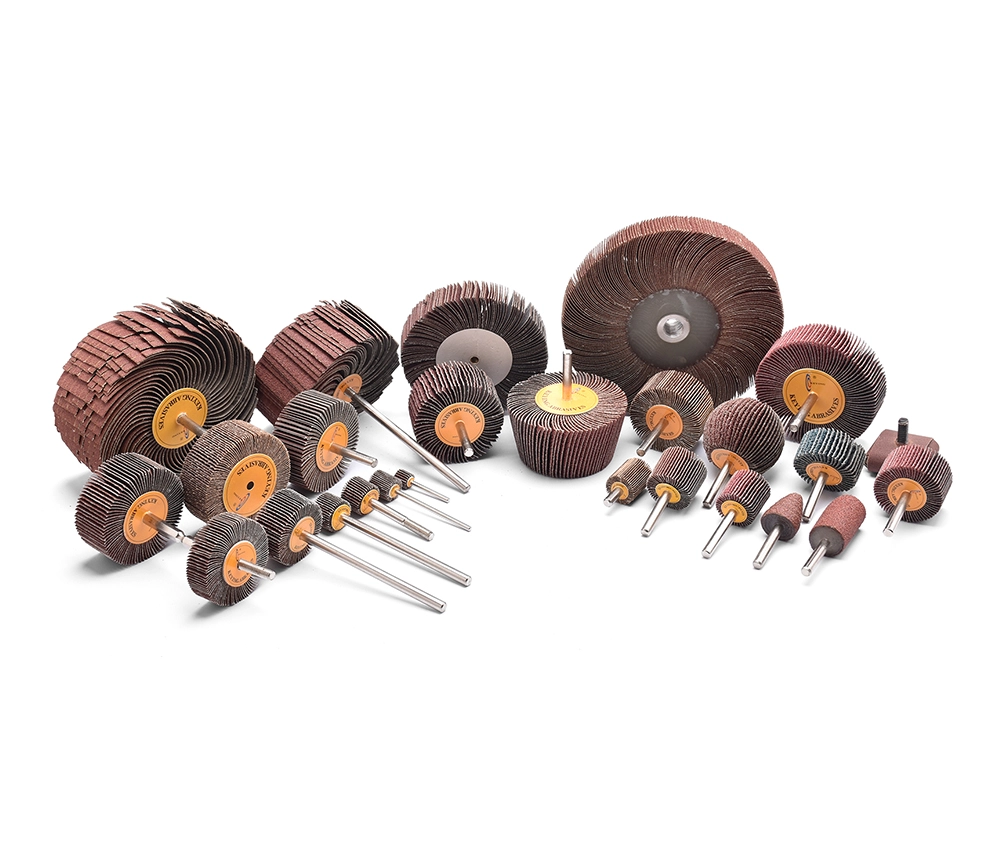
Dec 20-2017
Abrasives come in a variety of types and specifications, both domestically and internationally, and are utilized in a broad range of applications. The selection of abrasives largely depends on the specific needs of the end users, making it difficult to generalize. However, they are primarily used in two ways: manually or for machining.
Abrasive Machining is a technique that uses abrasive tools to remove excess layers from a work surface, ensuring the surface quality of the workpiece meets predetermined standards. This can be achieved using a grinder, power tool, pneumatic tool, or hand tool. Abrasive Machining is versatile and is often used as a tool accessory in rough machining, finishing processes, paint coating pretreatment, ultimately achieving ideal machining accuracy and surface quality.
The working principle of coated abrasive machining involves cutting, grinding, and polishing using abrasive particles coated on the abrasive under high-speed operation. It offers several unique advantages:
Coated abrasives are flexible and soft, allowing them to be folded, bent, wound, torn, and cut into various forms to meet different processing requirements. This makes the products more user-friendly and applicable to a wider range of uses.
Products with abrasive cloth, particularly flap wheel products, have high grinding force, less heat accumulation, quick heat dissipation, and are less likely to burn workpieces.
The abrasive has a high utilization rate and is not easily blocked. During the grinding process, the abrasive is consumed in sync with the workpiece material. The abrasive particles distributed on the abrasive surface can participate in the grinding evenly, maximizing usage. The abrasive particle coating process allows for reasonable self-sharpening and synchronous consumption of the product, with a large dust holding capacity, and is not prone to blockage.
All emery cloth products from KEYING do not require soaking, reducing the user’s production actions and production input costs. The quality and production process of the abrasive impact the quality and application effect of the flap wheel. Our products can consistently deliver their grinding performance in a continuous polishing environment without soaking, and do not produce excessive dust.
KEYING’s flap wheel can continuously polish and grind the workpiece, and can also handle the fine processing of workpieces with complex surfaces, such as aero-engine compressor blades, steam turbine blades, gas turbine blades, inner sides of valve body parts, concave and convex surfaces of groove bodies, navigation blades, and various metal workpieces with arc surfaces. Additionally, it can polish all kinds of glass, mirrors, wood, musical instruments, gold, and jewelry.
The dynamic balance control and lean degree of KEYING’s flap wheel can fully utilize its advantages in polishing automation and automatic lines.
Reference: Coated Abrasives and Polishing Technology, Zhengzhou University Press [2017]